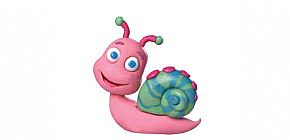Caution, Anemia: Your Infant Needs Iron, Here’s Why
 |
|
One of the more important elements to keeping your infant healthy is ensuring they receive a regular supply of iron. An iron deficiency can lead to a slew of negative ramifications affecting their nature and behavior - in the present, as well as in the future. According to the Health Ministry’s recommendations, infants should be given a daily iron supplement from the age of 4.5 months to 18 months.
How iron helps infants develop
Iron serves as the raw material that helps create hemoglobin, the protein found in red blood cells and responsible for the transportation of oxygen to various tissues in the body. While still in utero, your infant requires that you supply them with iron, which is why pregnant women need to consume twice the amount of iron as usual; enough for them and their babies.
Iron: Necessary during pregnancy, as well as after birth
Iron isn’t only needed for infants while in utero. Even once they are born, infants continue to need iron to be able to continue to develop. During the first months of life and until the age of two, infants develop at an accelerated pace. One of the most important organs to develop during this time is the brain, which needs lots of oxygen to be able to develop and function properly. This, of course, on top of all the smaller organs that also need lots of oxygen to be able to grow and develop, together with your infant.
Infant development depends on regular iron supplies
Your infant was born with an iron store containing enough iron for their first four months of life. In light of your little one’s accelerated growth, the iron store naturally depletes, which can cause anemia and directly impact current and future development. Tiredness, weakness, an inability to remain awake, restlessness and a reduced appetite are just some of the possible symptoms they may exhibit. And, aside from the immediate effects, an iron deficiency can influence infant development in several ways, creating problems that pop up in the future.
Infant iron deficiency - Long-term effects
Aside from the initial symptoms, an iron deficiency can affect your infant’s development on a deeper level, for the long-term:
-
Motoric - Your infant learns how to move their extremities, move from place to place, move objects - and grab hold of them. An iron deficiency is likely to cause your infant to feel too tired and unmotivated to move themselves forward. An iron deficiency can also disrupt your infant’s growth, create hearing and sight problems and even cause infants to stop breathing (in extreme cases).
-
Cognitive - An iron deficiency can delay the creation of neural connections that affect the learning process by reducing the number of neurons and lowering the layer of “insulation” surrounding these cells. The result - influences on how your infant understands what is going on around them, and how your infant understands and implements instructions. These issues can accompany your child throughout life.
-
Emotional - An iron deficiency can also affect your infant’s emotional state. Infants and toddlers who suffer from an iron deficiency tend to be dependent, tired, hesitant and caution. As a result, they tend to cling to their parents, are less inclined to develop social relationships and become more closed off and introverted, impacting their social skills.
What is the recommended dose of iron for infants and how can you obtain it?
True, iron deficiency comes with its fair share of side-effects and influences your infant’s development, but this is no cause to worry. We are here to help! How can you know which nutritional supplement is best for your infant? There are two main types of iron deficiency treatments on the market:
-
Nutritional supplements that contain iron to help prevent anemia
-
Iron medications to prevent anemia
What’s the difference between the two?
At first glance, it seems that there is no difference between the two, but it is always important to read the fine print. Nutritional supplements are not required to prove their effectiveness through clinical studies, their production process undergoes less stringent supervision than medication production processes (supplements need only undergo a poison control test by the Health Ministry’s Food Department).
Conversely, iron medications undergo a meticulous approval process by the Health Ministry, during which they are required to prove their effectiveness in preventing anemia, via clinical studies. In addition, the pharmaceutical companies producing these medications must meet exacting production standards.
Now that we understand that your infant needs iron, all that’s left is to ensure that they get the iron they need to develop. But before you choose the iron supplement you’ll give your child, ensure that it is, indeed, effective at preventing anemia and is emblazoned with a medical stamp of approval. After all, your infant deserves the best.
Prevent it you cannot, but you can definitely lower the risk of infants and children suffering from diarrhea if you vaccinate, maintain proper ...
The first three years of your infant’s life are the MOST significant with respect to development. During these years, infants acquire new skills in ...
Iron deficiencies are extremely common among infants and can cause the development of anemia. How do you prevent this from occurring? Ensure proper ...


.jpg)
.jpg)
.jpg)
.jpg)



.jpg)
.jpg)
.jpg)
.jpg)

.jpg)


.jpg)
.jpg)
.jpg)
Contact us